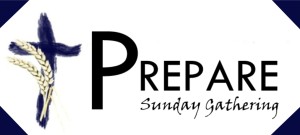With just two and a half weeks until Christmas (sorry for reminding you) you are likely in the midst of all the planning and activity for the season. Surely no time of year has such predictable rhythms and traditions associated with it. We plan office parties and our holiday visiting schedule, we bake the time-honoured family favourites, hear all the traditional carols many times over, decorate the home, put off our shopping, and pull out that ugly Christmas sweater again. For many of us these rhythms provide a sense of stability and comfort, which is not necessarily a bad thing. However, as I was meditating during devotions earlier this week, I also reflected on the dangers of familiarity. There is a lot of truth to the expression familiarity breeds contempt. I was thinking of our advent season, and particularly our sermon series centred on Isaiah 9:6:
For to us a child is born,
to us a son is given;
and the government shall be upon his shoulder,
and his name shall be called
Wonderful Counsellor, Mighty God,
Everlasting Father, Prince of Peace.
This is the best known of the prophecies concerning the birth of Christ, and we are guaranteed to come upon it every year through devotional reading, Christmas cards, cantatas, or preaching. How do we protect our hearts from the dangers of familiarity? How do we approach the familiar with the kind of awe and wonder of a child on Christmas morning? As I expressed my desire to the Lord to not treat him with apathetic familiarity (or worse contempt even) he drew my attention to Psalm 145. I know it probably feels like I am always asking you to read something, but would you take a moment very soon to read and meditate upon this precious psalm? It is the last psalm attributed to David, and it overflows with praise, honour, and thanksgiving to the Lord in every verse. If I were to sum up David’s heart cry in the psalm I would call it thankful awe. Verse one reads:
I will extol you, my God and King, and bless your name forever and ever.
Even this one verse is such a great example to us. How does David honour the Lord with praise? He does it in four ways:
1) Directly saying “I will extol you”
2) Personally saying “my God”
3) With a surrendered heart saying “my King”
4) Unending saying “forever and ever”.
Though David was the king of God’s chosen people Israel, he yields his life to the King of kings, to whom he offers unending praise and personal affection. The “Word made flesh” and dwelling among us is the surest sign of the Lord’s affection for us; I pray that as we meditate upon his names Wonderful Counsellor, Mighty God, Everlasting Father, and Prince of Peace that we renew a childlike sense of awe and wonder for our beautiful saviour.
Much love,
Pastor Gary

As we gather for Sunday worship, we want you to meet with God and be transformed by the Word. Prepare your heart by reading the passage and listening to the songs for Sunday.
